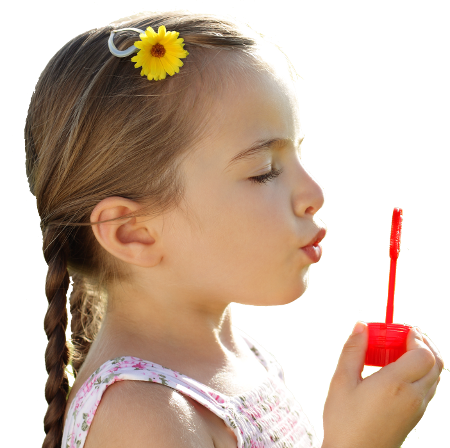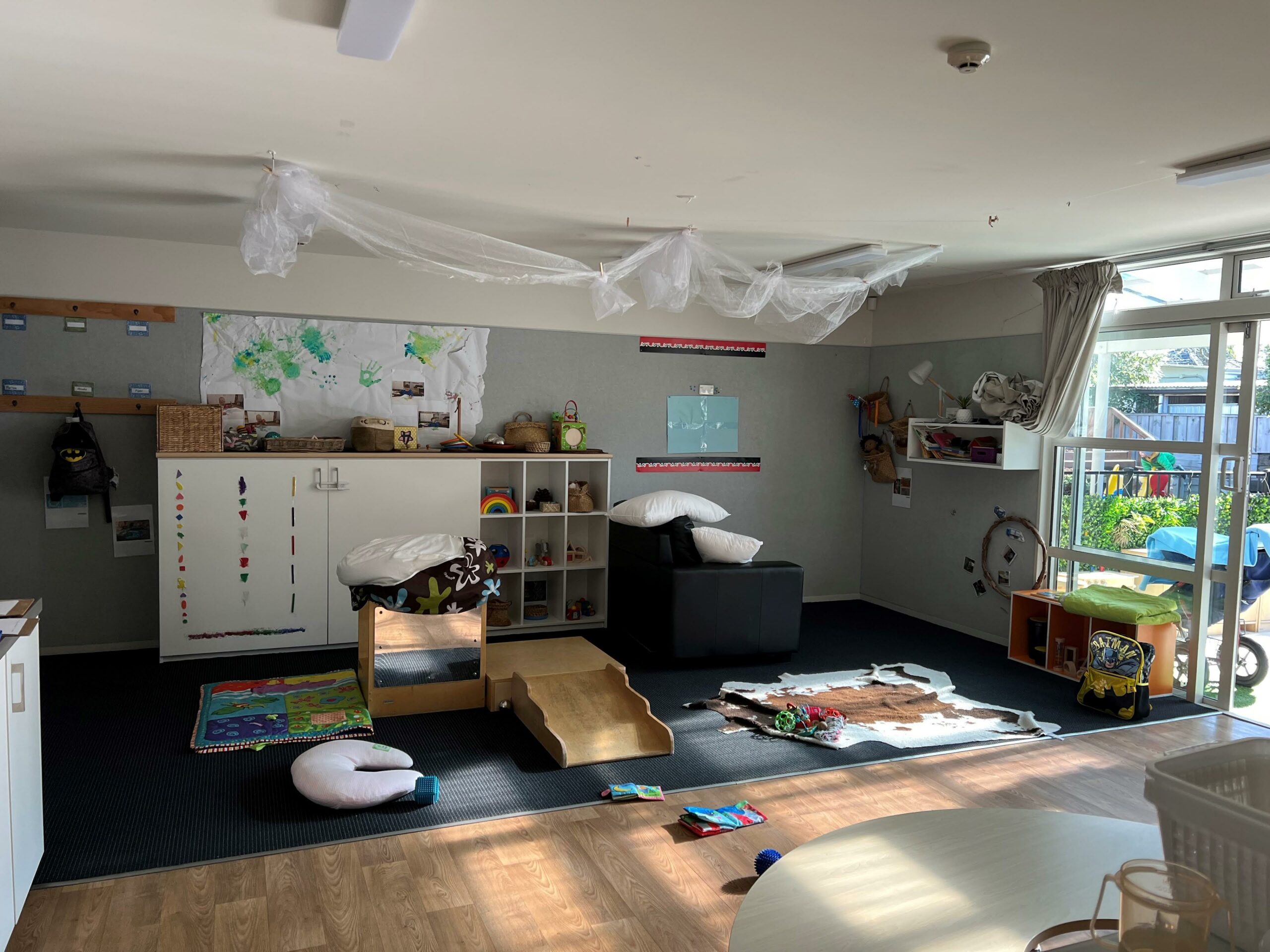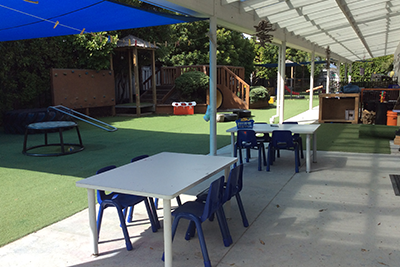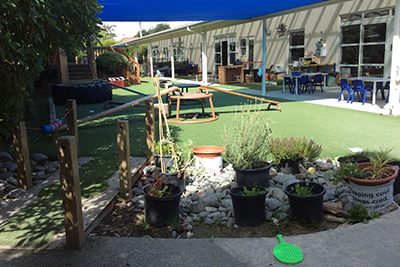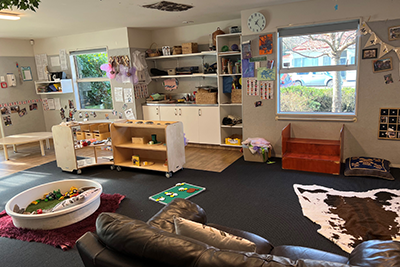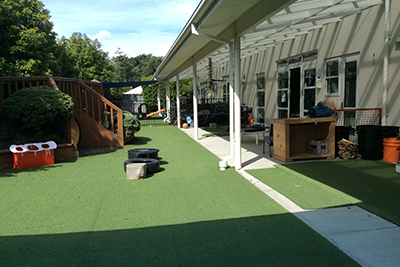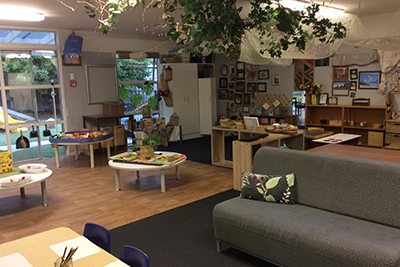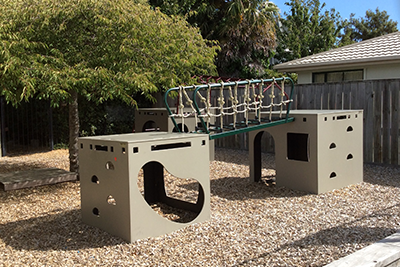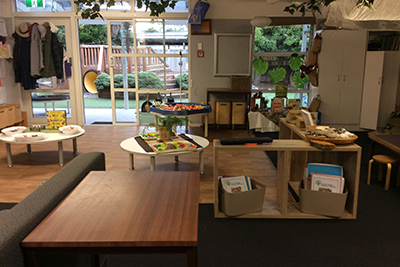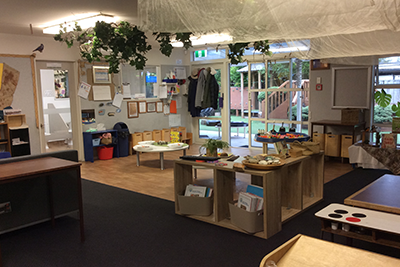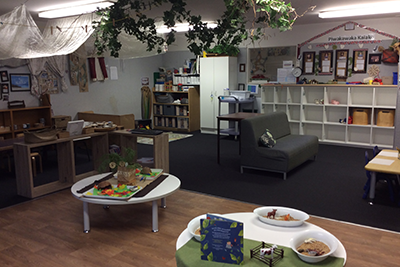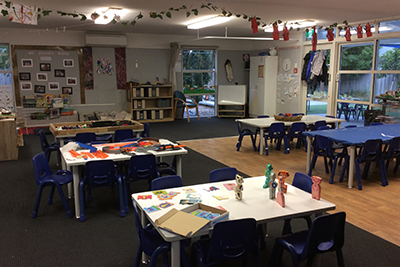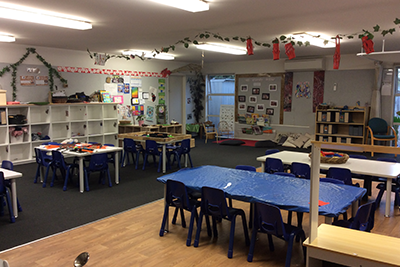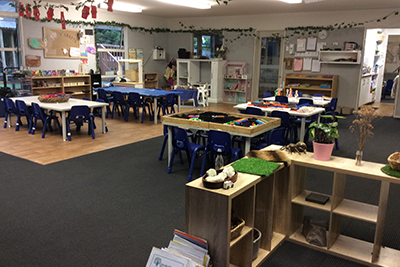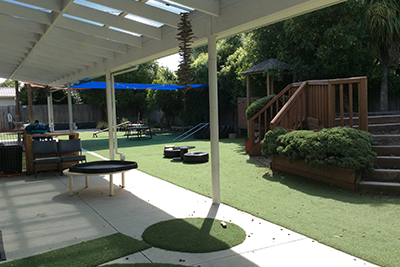Learning Space
Our learning spaces are named after New Zealand native birds, each bird has been chosen to reflect the development stage of the children who attend. Each learning space is carefully prepared and presented by our kaiako to support learning through play. Experience and rhythms of the day provide opportunities for tamariki to create, tinker, ponder and explore.
Care is taken to ensure this space is quiet, relaxed, slow paced and gentle while providing a range of sensory play experiences to extend learning.
Kaiako believe that young learners should not be rushed through stages of development, that all tamariki will set their own rhythm and pace for acquiring physical and communication skills.
Our programme can quickly change from story time, to art activities, to outside physical challenges, to dance time as the teachers respond to the needs and interests of the tamariki attending. Kaiako believe that our young learners are very competent and support tamariki to experience, practice and master a range of skills – language acquisition, feeling identification, self-care and self-help skills.
Our learning space is full of opportunities for children to find things of interest where they can ponder and tinker. Teachers are adept at providing tamariki with the time and space and support then to think, wonder, describe, practice, discuss and create.
Kaiako believe in children being un-rushed and doing things I tona wa (in their own time). Through giving tamariki the space and time to practice skills such as putting on a jacket, opening a lunchbox, children also learn how to set small goals and achieve them through repetition. Tamariki are supported to begin to develop the foundation skills for collaborative learning – to listen, to use their words and to share.
The rituals of the day provide large periods of time for children to independently choose what learning activities they engage in while also providing opportunities for the while group to be together for short periods of time.
Kaiako include many practices which develop skills to support these learners as they transition into primary school. Children are encouraged to be able to identify and take responsibilities for their belongings, to be confident communicators, care for their environment and others. Literacy and numeracy awareness and appreciation come as teachers and children engage in conversation and play based activities following the children’s interest.
